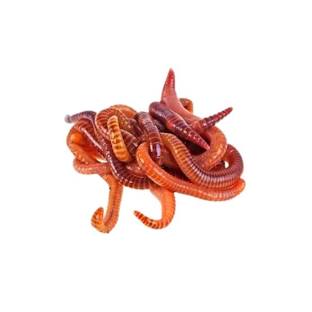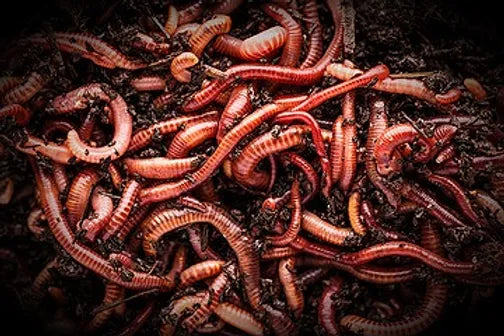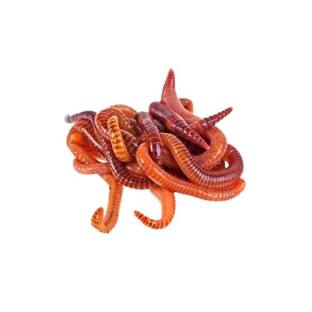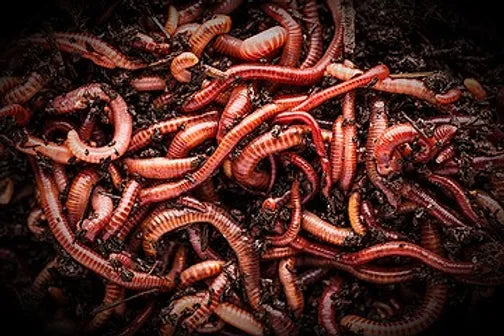Local
Red Wigglers & European Nightcrawlers Worms
Red Wigglers & European Nightcrawlers Worms
Couldn't load pickup availability
Red wiggler worms (scientifically known as Eisenia fetida) are excellent for a variety of beneficial purposes. Here's a breakdown of their main uses:
Vermiculture (Composting)
- Composting with red wigglers is one of the most popular uses. These worms are ideal for worm composting or vermicomposting, as they can consume organic waste and break it down into nutrient-rich worm castings (their waste). These castings are a highly effective, natural fertilizer for plants.
- Benefits for composting: Red wigglers consume food scraps, paper, and cardboard, turning them into valuable compost for your garden. They work faster than other worms because they thrive in nutrient-rich environments like compost bins.
Soil Aeration
- Red wigglers are good for improving soil health. As they move through the soil, they aerate it by creating tiny tunnels. This helps increase oxygen flow to plant roots, improves drainage, and supports overall soil structure, making it more fertile.
- Their castings also promote microbial activity in the soil, further enriching it.
Natural Pest Control
- As they break down organic materials, red wigglers can help in controlling pests by reducing the accumulation of decaying matter where harmful insects might thrive. They help keep the environment clean and balanced, promoting healthy plant growth.
Garden Soil Enrichment
- If you're looking to enrich your garden soil, adding red wigglers (or their castings) directly into the soil can boost its nutrient content, improve drainage, and enhance plant growth. This is a natural alternative to chemical fertilizers.
Benefits of European Nightcrawlers for Gardening:
Soil Aeration & Structure
European Nightcrawlers are burrowing worms, unlike Red Wigglers, which stay near the surface. Nightcrawlers dig deeper tunnels (up to several feet underground), helping to aerate the soil and improve water drainage. Their burrows allow roots to access more oxygen and nutrients. This makes them excellent for improving the structure of clayey or compacted soils.
Enhanced Soil Fertility
As European Nightcrawlers move through the soil, they consume organic matter, including dead leaves, plant debris, and manure. They break down these materials into nutrient-rich castings (worm manure), which are packed with beneficial microbes and nutrients. These castings improve soil fertility and encourage healthy plant growth by providing essential nutrients like nitrogen, phosphorus, and potassium.
Decomposition of Organic Material
European Nightcrawlers are highly effective at breaking down organic material that can otherwise take a long time to decompose naturally. They digest and process this matter faster than microbes alone. This is beneficial in gardens with a lot of organic waste or compost piles, as it helps speed up decomposition.
Better Drainage
The deep burrows created by European Nightcrawlers help improve the drainage in the soil. This is especially useful in areas prone to waterlogging or heavy rainfall, as the tunnels allow excess water to escape more easily.
Garden Mulch Breakdown
European Nightcrawlers are efficient at consuming and breaking down mulch, compost, and organic matter. This can help improve the overall health of your garden beds by turning mulch into rich, dark, healthy soil.
Resilience in Cold Weather
European Nightcrawlers are more cold-tolerant than some other worm species, like Red Wigglers. This makes them a good choice for gardens in cooler climates or for use in outdoor gardens that experience a frost season.




